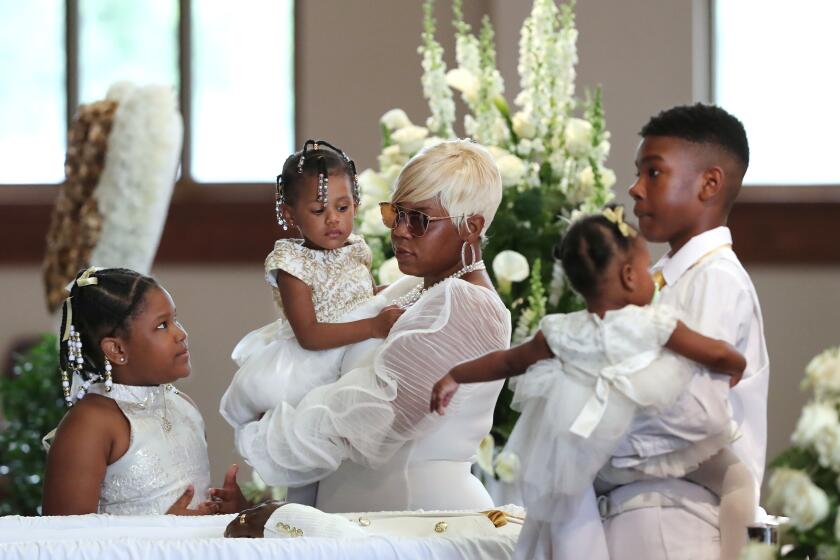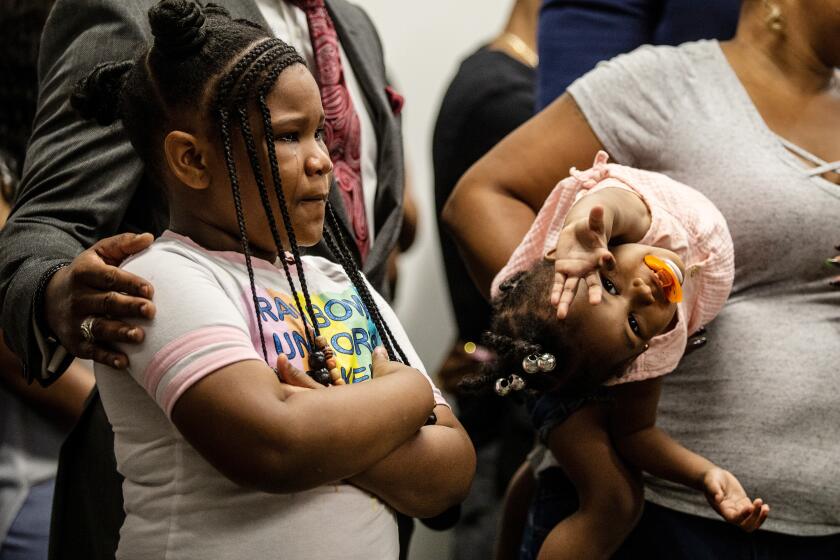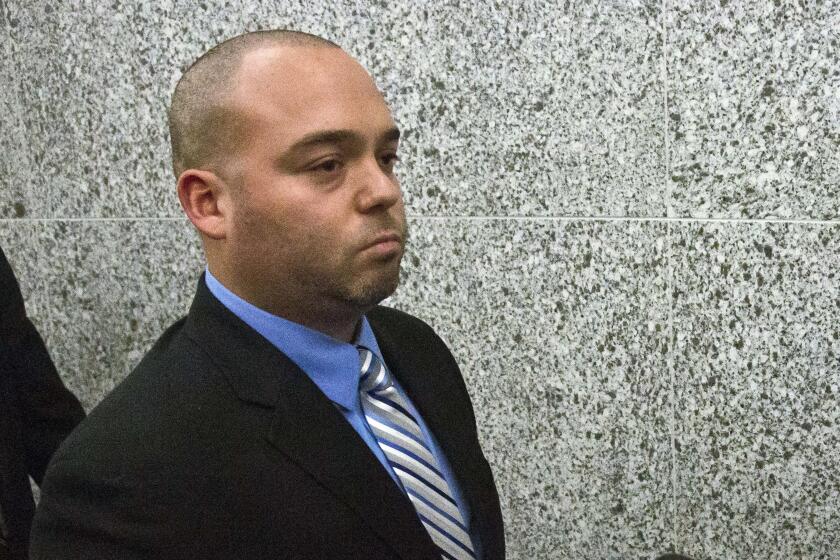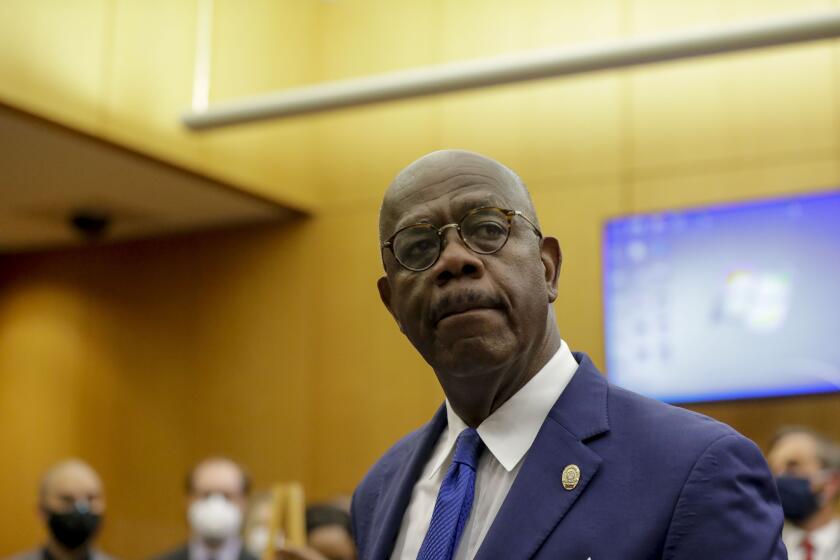‘I have to try to fend for myself’: Rayshard Brooks on his struggles months before his death
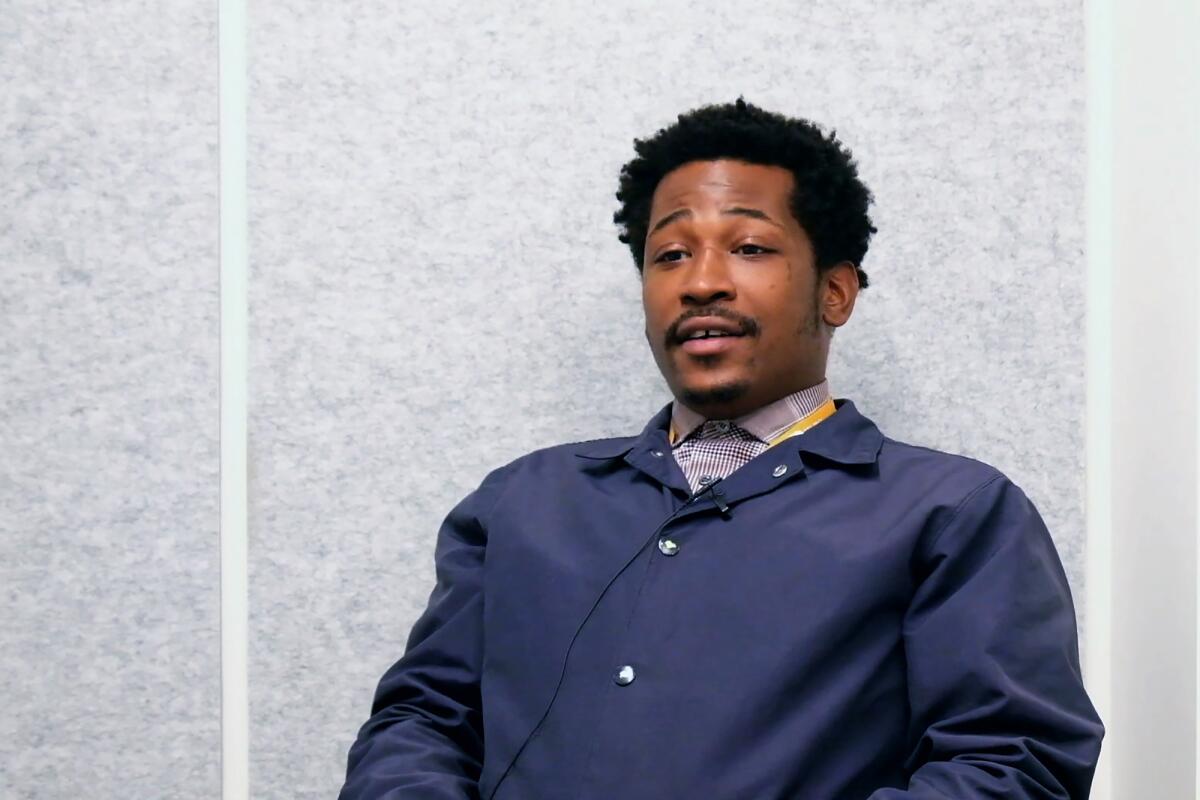
- Share via
ATLANTA — Rayshard Brooks didn’t hide his history.
About five months before he was killed by Atlanta police in a Wendy’s parking lot — before his name and case would become the latest rallying point in a massive call for racial justice and equality nationwide — Brooks gave an interview to an advocacy group about his years of struggle in the criminal justice system. He described an agonizing cycle of job rejection and public shame over his record and association with a system that takes millions of Americans, many of them Black like him, away from their families and treats them more like animals than individuals.
“That’s a hard feeling to stomach,” he told the group Reconnect, as he lamented the lack of support, both in prison and once released. “Once you get in there, you know, you’re just in debt. ... I’m out now, and I have to try to fend for myself ... clueless of everything that’s been going on. I don’t know, I’m trying to adapt back to society.”
When he died June 12, Brooks seemed to finally be gaining firmer footing, family members and friends say. He was working to support his wife, three daughters and stepson. He planned eventually to move to Ohio, where he’d recently spent months getting to know his father and was an energetic and supportive co-worker at a construction company.
Those close to him described him as always happy and smiling, ready to do anything — a silly dance or a cook-off — to make people laugh or defuse any tense situation.
He was a full-time carpenter and was regaining his kids’ trust, even starting to answer their questions about his time incarcerated, he said in the February Reconnect video. “I feel good about myself,” he said, smiling and rocking in his chair, eager to share his story.
Rayshard Brooks, a Black man fatally shot by a white police officer, was remembered at an Atlanta church where the Rev. Martin Luther King Jr. preached.
Family was a constant in his life. In 2014, he sent a plaintive, handwritten letter to a Georgia judge pleading to be freed from jail to care for his loved ones. Without his income from working full time in trucking, his wife was struggling with a new job and care of their kids, and she had to borrow money from a friend to get by, Brooks explained.
“Before I was arrested,” he wrote, “my job and home were the only things I was about, trying to feed my family. The kids are starting school back this upcoming August, and they’re going to need things to start back with such as uniforms, color pencils, line paper, notepads. ... So I’m asking by chance if you could grant me some probation if possible, and I promise that you will never have to worry about me coming before you ever again for anything.”
In the years that followed, though, he remained tangled in “the system,” as he called it in the Reconnect video. By the time he was killed, he had fallen behind on court payments, been sentenced to more time behind bars, and been required to wear an ankle monitor.
The weekend he died, Brooks, 27, had planned to take his eldest daughter skating for her birthday. Instead, wearing a bright shirt with the words “Rainbows, Unicorns, Weekends,” 8-year-old Blessen joined relatives at a news conference.
The family of a Black man killed by Atlanta police outside a fast food drive-through is pleading for changes to the criminal justice system and for protests to be calm.
Gymaco Brooks recalled laughing over drinks with his cousin a week and a half before he died. Rayshard Brooks reassured him he was staying out of trouble. The family had grown up close, Gymaco Brooks said.
“We could argue. We could fight. We could sleep 10 to one bed growing up, with feet and heads and arms across each other,” Gymaco said. “We didn’t have a lot of anything, but we had a whole lot of love for each other.”
Rayshard Brooks’ mother-in-law, Rochelle Gooden, recalled how he cared for his relatives and loved her like a mother. The two would have barbecue challenges — one time, she said, Brooks ate some lamb, but she insisted, “You know what, I don’t eat lamb.” As he finished, he teased her: “Baaaa!’”
In his 2014 letter to the judge, Brooks described how family helped him focus.
“When I’m down, my wife makes me happy. I feel invincible when we are together,” he wrote. He and Tomika Miller were married June 14, 2013, three days after Blessen’s first birthday: “Truly I can say that was the loveliest day of all the twenty one years I have been breathing.”
At the public viewing the day before Brooks’ funeral, Miller wore a white dress with a photo of the two of them printed across it.
“It’s going to be a long time before I heal. It’s going to be a long time before this family heals,” she told reporters after his death, her voice cracking and one of her young daughters in her arms.
A New York City police officer who was suspended after putting a man in what authorities said was a banned chokehold now faces criminal charges
In 2018, Brooks traveled to Toledo, Ohio, and met his father for the first time. Brooks stayed with him and his sister when he arrived.
“He loved it up here,” Brooks’ father, Larry Barbine, said in a telephone interview. “He was like, ‘This is the life I want to live. This is where I want to be.’”
Within a few months, Brooks made that happen: He moved to Toledo, though he knew almost no one there, having grown up in Georgia. He found work with a construction company and got his own apartment. He didn’t have a background in the industry but quickly picked up whatever was thrown his way, said Ambrea Mikolajczyk, who owns ARK Restoration & Construction with her husband.
“It didn’t matter if he was cleaning something or learning how to tile or paint; he brought that same energy, always cheerful and bright,” she said. “People fed off his energy.”
He made his new friends at work laugh by dancing to the country rap song “Old Town Road.” He rode his bike to work, no matter the weather, once stopping to walk with a co-worker whose car had broken down. “That’s the type of man Ray was,” said Mikolajczyk, who traveled to Georgia for his funeral.
Brooks thrived in Ohio. His father said he taught him how to fish and took him sledding for the first time.
Breaking News
Get breaking news, investigations, analysis and more signature journalism from the Los Angeles Times in your inbox.
You may occasionally receive promotional content from the Los Angeles Times.
In January, Georgia authorities brought Brooks back to the state on a fugitive warrant alleging that he failed to notify them of his address and complete a theft-prevention class as his probation required.
It traced back to 2014, when he pleaded guilty to domestic violence, theft and other charges. Prosecutors said he twisted the wrist of his wife. In his letter to the judge, Brooks called it a “minor disagreement.” His wife couldn’t visit him in jail because she was the victim, but they talked on the phone and she sent him food, he said. The kids gave her a hard time in his absence, he wrote.
But Brooks was the “primary aggressor” in another incident, this one witnessed by a child, leading to a child cruelty charge, according to a grand jury report. He pleaded guilty and was sentenced to a year behind bars and six years of probation.
And in 2016, he pleaded guilty to credit card theft, for another yearlong sentence.
When officials brought him back to Georgia, he owed $219.21 in court payments and spent 19 days in jail before he was released on probation, court records show.
The Lakers’ Dwight Howard wore a shirt with words formed into wings that said “Breathe again” as his uncle announced murder charges in Rayshard Brooks’ killing.
He’d been out for nearly six months when officers approached him at Wendy’s, where he was asleep inside a car blocking the drive-through lane. Body-camera video showed Brooks and officers having a calm, cooperative conversation for more than 40 minutes. A struggle erupted when police tried to handcuff Brooks for being intoxicated behind the wheel.
Brooks said he didn’t want to be “in violation of anybody” and told the officers he could walk home. He told officers he’d been with a girlfriend named Natalie White that night. White would later be charged with arson in the fire that engulfed the Wendy’s as protesters outraged by Brooks’ death gathered there. White’s lawyer has declined to comment on their relationship, saying only that they were close.
Officer Garrett Rolfe, 27, fatally shot Brooks after Brooks grabbed one of the police Tasers and fired it at Rolfe as he ran away. Rolfe is charged with murder. A second officer, Devin Brosnan, 26, is charged with aggravated assault. Lawyers for the men, who are both white, say their clients’ actions were justified.
In Ohio, family and co-workers were heartbroken. Brooks had stayed in touch with ARK Restoration and talked of returning there for work once he could move to Toledo with his family, Mikolajczyk said. Upon seeing the headlines, one stunned client called her, asking: “Is this our Ray?”
Brooks’ father celebrates their time together but grieves for a stolen future.
“Life was short for us,” he said. “Life was very short for us, getting to know each other.”
More to Read
Sign up for Essential California
The most important California stories and recommendations in your inbox every morning.
You may occasionally receive promotional content from the Los Angeles Times.
